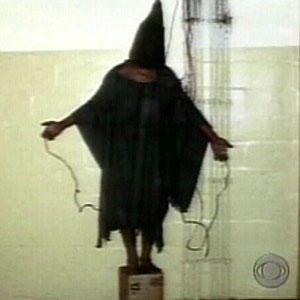
and the first words that pop into my head are a "Fuuuuuuck youuuuuu." Not very Buddhist of me, and I wish that were not my response... but still...
Coming after last summer's disastrous experiment in open-source editorials at The Los Angeles Times, The Washington Post's disinvitation to the public could be seen as just another pratfall by the mainstream media.But that is not the whole truth. Newspapers like The Post and The New York Times present a large, juicy target for dissent from both the right and the left. Finding an appropriate way to feature and moderate comments from the reading public is challenging not just for the old-line media, but for many of the Web's most robust destinations, including Craigslist, BoingBoing.net, Huffington Post and Lucianne.com.
Feedback, as any rock guitarist can tell you, is not always a pleasant-sounding thing. The trouble with a community built of one-way e-mail messages posing as two-way communication is that when people can say anything, they frequently do - a fact of digital life that goes back to The Well, the pioneering online community that presaged the potential and the potential pitfalls of digital social discourse beginning in 1985.
If the first e-mail message did not flame the recipient, the response probably did. There is a kind of permission that hangs over the keyboard along with anonymity that often leads to more over-the-top argument than reasoned exposition.
It is not a site-specific problem," said Jim Brady, executive editor of washingtonpost.com. He pointed out that the newspaper had many active discussions on other parts of the site, but that the signal-to-noise ratio in the post.blog discussion had deteriorated to the point that two Post employees could not keep up with filtering responses.
"As a certain point, you think, 'Why should we be handing them a weapon against us?' If all they are going to do is call people names, why would we do that? The question becomes whether we are able to set the rules of engagement on our own site."
Ms. Howell, a longtime newswoman who has heard and uttered her share of tough talk, was dumbstruck by how personal and vicious the debate had become. (Full disclosure: About 25 years ago, Ms. Howell turned me down for a job, but I was nowhere near the Post Web site on Thursday.)
"It was a mistake, but they wanted me to be drawn and quartered at high noon in the public square," she said. "This was a huge learning experience for me. I have to be very precise and have a very tough skin." Ms. Howell tacked back to the subject in her regular newspaper column yesterday, a move likely to provide more rocks for what she called "a public stoning."
Bull. In a world as profane and nasty as the one Bush has given us, the "they hurt me with their words" argument just doesn't cut it.
Now while I would probably agree with the late Phil Ochs that in an ugly world the true protest is beauty, I would also submit that ugliness and hatred set in motion further ugliness and hatred; witness Palestine, or Cambodia.
Ms. Howell worries about a "public stoning." Why should she worry about mere words, when the actions of the Bush regime and their corruption are what are really of concern?
No comments:
Post a Comment